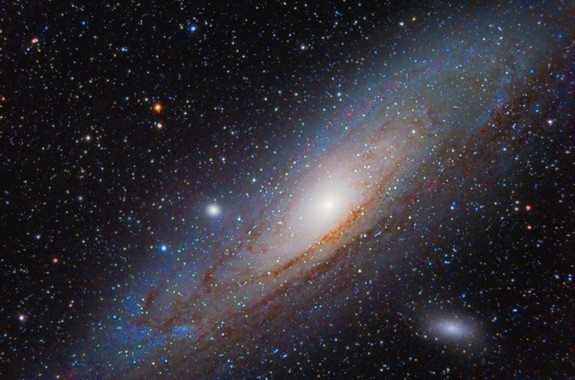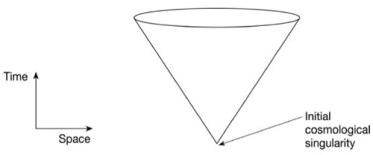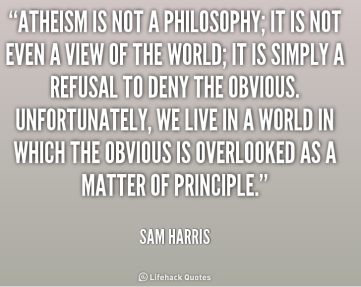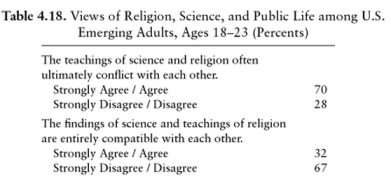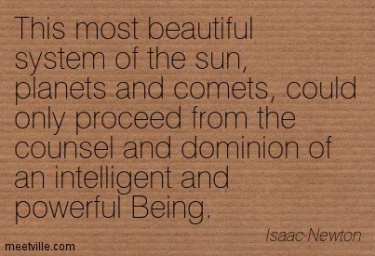“No question is more sublime than why there is a Universe: why there is anything rather than nothing.” – Derek Parfit
In my introductory post, I said that if certain statements in the bible are true, there would be evidence for God’s existence and glory in the realm of science and philosophy. The aim is not to provide proof for God’s existence of course, but to put forward the evidence and see whether belief in God is reasonable. To go in search of the fingerprints of a Creator.
And what better place to begin than the ultimate beginning!
The Big Bang Theory
 Perhaps unfortunately, the first thing that may have popped into your head after reading the heading above was a lounge-room scene of lovable geeks and cringe-worthy Sheldon Cooper one-liners. But the emergence of the Big Bang Theory of the early universe is actually one of the great scientific advances of the 20th century.
Perhaps unfortunately, the first thing that may have popped into your head after reading the heading above was a lounge-room scene of lovable geeks and cringe-worthy Sheldon Cooper one-liners. But the emergence of the Big Bang Theory of the early universe is actually one of the great scientific advances of the 20th century.
For hundreds of years, a beginning-less ‘steady state’ model of the universe was considered a viable theory of cosmology. But since the emergence of Albert Einstein’s theory of relativity and Edwin Hubble’s findings in the early 20th century, the idea of the universe existing eternally in the past has been done away with by leading scientists. The evidence of an expanding universe, the Cosmic Microwave Background, the galactic red shift, and the abundance of the light elements, have rightly made the Big Bang the widely accepted model of the early universe.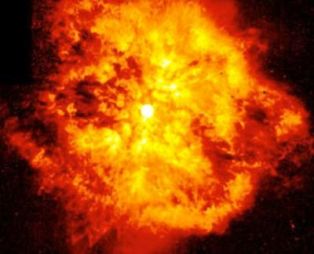
The standard Big Bang model describes a universe which is not eternal in the past, but which came into being around 13.7 billion years ago. All time, matter, energy and physical space came into existence at the Big Bang, literally from nothing.
“the coming into being of the universe, as discussed in modern science . . . is not just a matter of imposing some sort of organization . . . upon a previous incoherent state, but literally the coming-into-being of all physical things from nothing.” – P. C. W. Davies, physicist and co-Director of the Cosmology Initiative, Arizona State University
Even just few weeks ago, researchers from the Harvard-Smithsonian center for Astrophysics made a significant breakthrough in the understanding of the Big Bang, discovering further evidence of the rapid expansion of the universe.
As part of his research into cosmic expansion in 2003, Alexander Vilenkin concluded that in fact any model of the early universe, or indeed the existence of a ‘multiverse’ of which ours is a part of, would require a starting point, given the current evidence.
“With the proof now in place, cosmologists can no longer hide behind the possibility of a past-eternal universe. There is no escape: they have to face the problem of a cosmic beginning.” – Alexander Vilenkin, Director of the Institute of Cosmology at Tufts University
The standard Big Bang model
There have certainly been other theories posited in the last hundred years, though none have proved to be as viable as the classical theory of the Big Bang.
Stephen Hawking’s ‘no boundary model’ is an example of such a theory, described in part in his recent popular books. Although Hawking’s theory appears on the surface to evade the space-time origin question, he only does so using the concept of ‘imaginary time’, which has been repeatedly questioned as to its ability to describe the physical reality of the origin of the universe. Thus Hawking has not had much backing in using this principle to argue against an absolute beginning. His proposed theory still confirms the origin of real time and the real universe.
So, through more than eight decades of scientific advancement, the classical Big Bang theory still stands as the most scientifically validated and philosophically coherent explanation of the beginning of the universe, and as such is the model currently taught in our schools and universities.
But what does this have to do with the existence of God??
The transcendent cause
The reason the big bang is evidence for God is that things that begin need a ‘beginner’. Or to phrase it negatively, nothing comes from nothing.
You probably learnt this as a child, the first time you craved that ice-cream that your parents refused to buy you – things don’t just pop into existence out of nothing. It is a basic premise that out of nothing, nothing comes. Every new poem requires a poet. Every 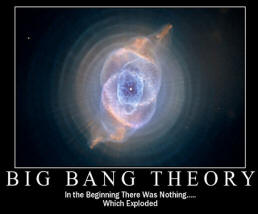 original masterpiece necessitates an artist. The origin of any new idea in your mind is only possible if you exist to think it up!
original masterpiece necessitates an artist. The origin of any new idea in your mind is only possible if you exist to think it up!
A recent attempt by Lawrence Krauss suggesting that our concept of ‘nothing’ isn’t actually nothing, has succeeded in confusing many but convincing few. ‘Nothing’ is not a complex state of quantum particles – that would clearly be ‘something’.
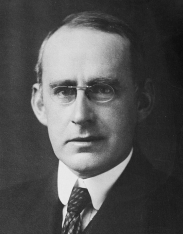 We can be confident in saying that because the universe began to exist, it has an external, transcendent cause. When asked the question of how the universe began, it is not sufficient to answer with ‘The Big Bang!’. There seems to have been something behind it.
We can be confident in saying that because the universe began to exist, it has an external, transcendent cause. When asked the question of how the universe began, it is not sufficient to answer with ‘The Big Bang!’. There seems to have been something behind it.
“The beginning seems to present insuperable difficulties unless we agree to look on it as frankly supernatural.” – Sir Arthur Eddington, British astronomer and physicist of the early 20th Century
The best explanation
So what then is the best explanation of the Big Bang? What is the nature of this transcendent Cause? I believe it to be an eternal, powerful and personal Creator, who brought the universe into existence out of his own volition.
Now maybe you’re like ‘Whoooaa that was a big jump – why does the cause have to be that?!?’. But let’s think about it for a minute… the Big Bang is the origin of all space-time. So the cause of the universe must be outside of space and time (something cannot cause itself to exist!). So this cause is beginningless, immaterial and unchanging.
The only things we know of which have these qualities are personal minds and abstract objects. But abstract objects (e.g. numbers) don’t have any power; they can’t cause anything to happen. They just are. So this leaves us with a personal mind as the most reasonable ultimate Cause. Only a personal Mind with freedom of will could be around forever and yet be able to produce a finite reality.
American William Lane Craig, the most prominent modern philosopher to put forward this argument for God’s existence, concludes with the confident assertion that a Creator is behind the origin of the universe.
“we may therefore infer that a personal Creator of the universe exists who is uncaused, without beginning, changeless, immaterial, timeless, spaceless, and unimaginably powerful.” – William Lane Craig, Research Professor of Philosophy at the Talbot School of Theology.
Through thousands of years of human thought, there remains no better explanation for the fact everything exists than the first four words of the bible.
“In the beginning, God…” – Genesis 1:1
Is there a more reasonable alternative, given the evidence? The most popular atheist alternative seems to be that the universe does not have an explanation for its existence, which can sometimes appear evasive.
“The universe is just there, and that’s all.” – Bertrand Russell
But the simple, elegant and awe-evoking hypothesis of a Creator God provides a reasonable alternative to an inexplicable, and ultimately meaningless, brute fact of the origin of the universe.
